Search Results
Showing results 41 to 60 of 77

Crazy About Kites
Source Institutions
In this activity, learners build a kite out of paper, change it, and try to make it fly even better. With their new knowledge of kite making, students can then go on to create their own kite designs.

Cook Food Using the Sun
Source Institutions
Learners build a solar oven from a cardboard pizza box, aluminum foil and plastic. Learners can use their oven to cook S'mores or other food in the sun.
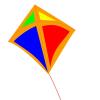
Building Tetrahedral Kites
Source Institutions
Working in teams of four, learners build tetrahedral kites following specific instructions and using specific materials.
Up, Up and Away with Bottles
Source Institutions
In this activity, learners make water rockets to explore Newton's Third Law of Motion. Learners make the rockets out of plastic bottles and use a bicycle pump to pump them with air.

Heart of the Matter
Source Institutions
In this activity, learners explore the concept of valve operation and how engineers have adapted valves for use in mechanical heart valve design.

A Degrading Experience
Source Institutions
In this activity on page 27, learners perform an experiment to learn about how different types of marine debris degrade and how weather and sunlight affect the rate of degradation.

From Here to There
Source Institutions
In this water activity, learners discover ways to move water across the water table.

Carbon Sequestration
Source Institutions
In this inquiry-based lesson, learners measure the biomass of trees, calculate the carbon stored by the trees, and use this information to create recommendations about using trees for carbon sequestra
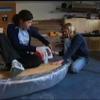
Homemade Hovercraft!
Source Institutions
This activity (on page 2 of the PDF under SciGirls Activity: Hovercraft) is a full inquiry investigation into hovercraft engineering and design optimization.

Nano Scavenger Hunt
Source Institutions
This is an activity (located on page 3 of PDF under Where's Nano? Activity) about identifying nanoscale objects and phenomena in today's world.

Racing with the Sun: Creating a Solar Car
Source Institutions
Learners use engineering design principles to construct and test a fully solar-powered car. Solar car kits usually include a photovoltaic cell and motor; some include a chassis as well.

For Your Eyes Only
Learners build particulate matter collectors--devices that collect samples of visible particulates present in polluted air.
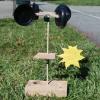
Weather Vane and Anemometer
Source Institutions
In this meteorology activity, learners construct simple devices to measure the direction and speed of wind.
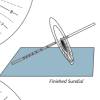
Equatorial Sundial
Source Institutions
In this activity, learners make an equatorial sundial, which is simple to construct and teaches fundamental astronomical concepts. Learners use the provided template and a straw to build the sundial.

Pot-in-Pot Refrigeration
Source Institutions
In this activity (on page 2 of PDF), learners create a low-tech refrigerator that requires no electricity to keep food from spoiling.

Speedy Shelter
Source Institutions
In this design challenge activity, learners invent an emergency shelter that can fit a person and is sturdy and quick to build.
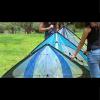
Kites
Source Institutions
This activity (on page 2 of the PDF under SciGirls Activity: Kites) is a full inquiry investigation into how a kite’s shape affects its performance.
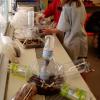
Biodomes Engineering Design Project
In this design-based activity, learners explore environments, ecosystems, energy flow and organism interactions by creating a model biodome. Learners become engineers who create model ecosystems.
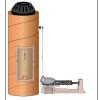
Rocket Wind Tunnel
Source Institutions
In this activity, learners evaluate the potential performance of air rockets placed inside a wind tunnel.

Oil Spot Photometer
Source Institutions
In this math activity related to light, learners assemble a photometer and use it to estimate the power output of the Sun.
